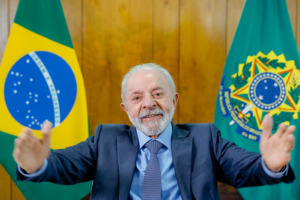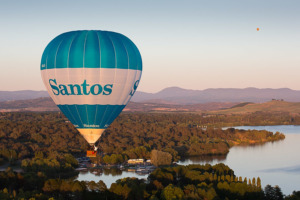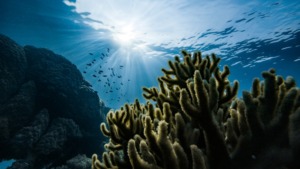Today’s ESG Updates
-
- NYC Climate Week Hits Record Scale: Over 1,000 events and big investments expected despite policy headwinds from Trump.
- Brazil to Lead Global Forest Fund: President Lula will announce on Tuesday the first national investment in $125B tropical forest conservation facility.
- Santos Ltd. Starts Barossa Gas Project: Australia begins output from one of its dirtiest LNG projects, despite the country’s recent climate promises.
- The High Seas Treaty is Set to Become International Law: The oceans pact secured its 60th ratification on Friday and is set to enter into force in January.
New York readies for the UN General Assembly and a record Climate Week
New York City’s Climate Week will be its largest yet, with more than 1,000 events despite the U.S. administration’s fossil fuel agenda. This surge in participation is likely a counter-response to Trump’s climate-denying stance, as companies, NGOs, and philanthropies accelerate action outside government channels. The long-anticipated UN General Assembly will also take place alongside Climate Week, with the climate change talks planned for Wednesday. Leaders will announce new climate targets, or Nationally Determined Contributions. Unlike in the past, the European Union and the U.S. will not be leading the discussions on these targets. China, Brazil, and other rapidly developing nations are now taking a more active role in shaping the global agenda.
***
Further reading: New York readies for record Climate Week despite Trump chill factor
Brazil is the first to invest in the Tropical Forests Forever Fund
 Brazil’s President Lula to kickstart $125B Global Forest Fund with first investment. Photo Credit: Palácio do Planalto
Brazil’s President Lula to kickstart $125B Global Forest Fund with first investment. Photo Credit: Palácio do Planalto
Brazil will become the first country to invest in the Tropical Forests Forever Facility (TFFF), a $125 billion fund designed to reward nations for preserving tropical forests. President Lula is expected to announce the investment at the U.N. General Assembly, signaling Brazil’s commitment ahead of COP30, which it will host in the Amazon this November. China has also indicated plans to contribute, alongside interest from the UK, France, Germany, Norway, and the UAE. Brazil’s early pledge aims to unlock the first $25 billion from governments and philanthropies, setting the stage ahead of the assembly for additional private-sector contributions to drive global forest conservation.
***
Further reading: Exclusive: Brazil will be first to invest in global forest fund, sources say
Featured ESG Tool of the Week:
Klimado – Navigating climate complexity just got easier. Klimado offers a user-friendly platform for tracking local and global environmental shifts, making it an essential tool for climate-aware individuals and organizations.
Santos starts the Barossa gas project in Australia
 Output begins at Australia’s Barossa, one of the world’s dirtiest gas projects. Photo Credit: Santos Limited
Output begins at Australia’s Barossa, one of the world’s dirtiest gas projects. Photo Credit: Santos Limited
Santos Ltd. has begun production at the Barossa gas field, one of Australia’s most carbon-intensive LNG projects. The project, which will supply up to 3.7 million tons of LNG annually to Asian buyers, has faced years of opposition from environmental groups and Indigenous Tiwi Islanders. The gas field releases an exceptionally high quantity of CO₂, making it extremely incompatible with Australia’s brand new pledge to cut emissions 62–70% by 2035. Santos says it will rely on offsets and carbon capture to comply with regulations, but offset investments do not change the fact that the project undermines Australia’s climate credibility. Expanding fossil fuel exports is one of the most carbon-intensive choices a country can make.
***
Further reading: Santos Starts Barossa Gas Project, Among Australia’s Dirtiest
Key global oceans treaty gains 60th ratification to come into force
 The High Seas Treaty has secured ratifications and will enter into force in January. Photo Credit: Marek Okon
The High Seas Treaty has secured ratifications and will enter into force in January. Photo Credit: Marek Okon
The High Seas Treaty, a landmark global agreement to protect international waters, reached 60 ratifications last Friday and will enter into force in January. Covering two-thirds of the world’s oceans, the treaty enables the creation of Marine Protected Areas to combat overfishing, pollution, and biodiversity loss. Environmental groups are hailing the successful treaty as “monumental,” marking a turning point for ocean governance after decades of negotiation. Currently, only 1% of the high seas are protected, though nations have pledged to safeguard 30% by 2030. While ratification was unusually swift, enforcement challenges remain as countries retain control over their own assessments.
***
Further reading: Key oceans treaty crosses threshold to come into force
Editor’s Note: The opinions expressed here by the authors are their own, not those of impakter.com — In the Cover Photo: New York City skyline, December 12, 2017. Cover Photo Credit: Hannah Busing
